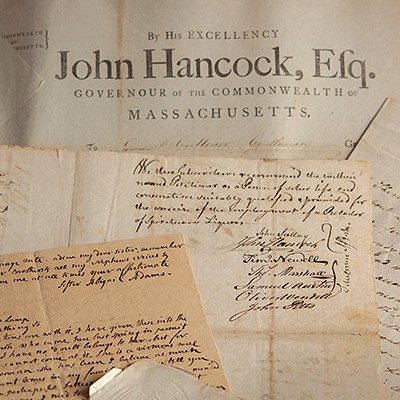Joseph Lister Autograph Letter Signed
Two ways to bid:
- Leave a max absentee bid and the platform will bid on your behalf up to your maximum bid during the live auction.
- Bid live during the auction and your bids will be submitted real-time to the auctioneer.
Bid Increments
| Price | Bid Increment |
|---|---|
| $0 | $5 |
| $50 | $10 |
| $200 | $25 |
| $500 | $50 |
About Auction
Jul 12, 2023
RR Auction support@rrauction.com
- Lot Description
British surgeon (1827-1912) who pioneered the practice of sterile surgery, one of the most important medical advances of the day. ALS signed “Lister,” one page, 4 x 6, black-bordered personal letterhead, November 29, 1898. Handwritten letter to Archibald Geikie (1835-1924), prominent Scottish geologist who investigated much of the British Isles and worked on volcanic activity. In full: "I am much obliged to you. I have heard from Lord Curzon that he will reply & I have further learnt that he takes the precedence of Lord Kitchener by virtue of prior appointment. When I hear from Lord Kitchener, I will let you know." In very fine condition.
Joseph Lister and Archibald Geikie were both members of the Royal Society. Lister succeeded Geikie as Foreign Secretary of the Society and in 1895 became its president (through 1900). On November 5, 1898, a banquet was given to honor General Kitchener, Commander of the Egyptian Army, who had won fame for his success at the Battle of Omdurman, taking control of the Sudan. According to The New York Times of November 5, 1898, the “sword of honor‰Û_ in recognition of his defeat of the dervishes at Omdurman” was given to Kitchener at a banquet held by the Lord Mayor of London. Among the attendees at the banquet, according to The New York Times as well as many other newspapers of the day, was “Joseph Lister, President of the Royal Society,” and “Lord Curzon of Kedleston,” the “newly appointed viceroy of India.” According to “Lord Curzon in India‰Û_ Selections from his Speeches‰Û_.” (New York, Macmillan, 1906), Curzon arrived in Bombay to begin as viceroy on December 30, 1898 after a passage that “took three weeks.” The formal hand over took place on January 6, 1899. Shortly before his departure from England, “Lord Curzon was entertained at dinner on November 7, 1898 by The Royal Societies’ Club at their House Club in St. James’s Street.” In his speech at the dinner, Curzon thanked his hosts, saying “I have the privilege of meeting and being entertained by a number of gentlemen who are interested in many branches of scientific inquiry, and not least in that one with which alone I can claim to have any practical connection‰Û_ geography.” By virtue of these dinners, meetings and banquets, Lister and Geikie who had known one another for many years as colleagues and members of the Royal Society, encountered and perhaps grew to know both Kitchener and Curzon. - Shipping Info
-
Bidder is liable for shipping and handling and providing accurate information as to shipping or delivery locations and arranging for such. RR Auction is unable to combine purchases from other auctions or affiliates into one package for shipping purposes. Lots won will be shipped in a commercially reasonable time after payment in good funds for the merchandise and the shipping fees are received or credit extended, except when third-party shipment occurs. Bidder agrees that service and handling charges related to shipping items which are not pre-paid may be charged to a credit card on file with RR Auction. Successful international Bidders shall provide written shipping instructions, including specified Customs declarations, to RR Auction for any lots to be delivered outside of the United States. NOTE: Declaration value shall be the item’(s) hammer price and RR Auction shall use the correct harmonized code for the lot. Domestic Bidders on lots designated for third-party shipment must designate the common carrier, accept risk of loss, and prepay shipping costs.
-
- Buyer's Premium



 EUR
EUR CAD
CAD AUD
AUD GBP
GBP MXN
MXN HKD
HKD CNY
CNY MYR
MYR SEK
SEK SGD
SGD CHF
CHF THB
THB












